Validate
Assess. Test. Evaluate. Assure.
Home > Validate
In UK Civil Protection, plans, procedures and other emergency arrangements are validated to ensure that they meet the purposes for which they were designed. Exercising is a core tool we can use to validate our emergency preparedness, response and recovery capabilities.
UKRA takes a broad approach to checking and improving emergency response and recovery plans. Alongside exercises, we promote associated validation methods including the review of real incidents, engagement with peer reviews, and the completion of structured assurance checks to make sure that arrangements work in practice.
What is validation?
Validation is the process of determining the accuracy, reliability, and effectiveness of something, in this case our preparedness, response and recovery capabilities. The purpose of validation is to ensure that people, plans and procedures can skilfully and reliably produce desired outcomes under different conditions or circumstances.
Why is validation important?
Validation processes are essential for ensuring the quality, consistency, and reliability of resilience capabilities. It enables teams, organisations and partners to test whether arrangements work in practice.
What does validation involve?
Validation typically involves evaluating capabilities against benchmarks, documented plans or procedures. Assurance goes further by assessing capabilities against standards for practice, performance and outcomes. This includes setting clear evaluation criteria and systematically applying them across different contexts to assess performance, identify strengths and weaknesses, and highlight areas for improvement.
Exercising Hub
The Academy Exercising Hub convenes organisations, encourages collaboration on exercising across organisational silos, and produces and signposts relevant development resources.
Advisory Services
Offering validation support through exercise and advisory services the UKRA team can help you to validate your resilience plans and capabilities.
Lessons Management
Lessons Management supports evidence-based learning from exercises and emergencies, to promote continual improvements in civil protection and resilience. Crucially, this includes a continual strengthening of the emergency response.
Resources
Here are some resources to learn more

Resilience & Emergencies National Occupation Standards
Nationally recognised standards to define the skills, knowledge and performance expected of those working in resilience and emergency roles.

Assessing the Public Value of Societal Resilience to Disruption
This report by the National Consortium for Societal Resilience explains the investments that individuals, communities, VCFSE organisations, local/central government, and businesses make in societal resilience. It describes how investing in societal resilience helps to lessen the impacts of a disruption. That saves money and brings additional benefits. It shows how £1 spent on societal resilience saves £35.12 when disruptions hit every 5 years.

Exercise in a Box
Exercise in a Box is a free resource which helps organisations find out how resilient they are to cyber attacks and practise their response.

NCSC Exercising Page
The National Cyber Security Centre’s website provides advice and guidance, including on planning cyber exercises.

The Rapid Response Collecting Guidance
The Rapid Response Collecting Guidance has been produced by The National Archives and a group of archive sector professionals. It is there to help support archive collections staff manage the collection of tributes and spontaneous memorials, left in response to unforeseen, sudden, unpredictable, or unprecedented events.

Organisational Resilience Guidance for UK Government Departments, Agencies and ALBs
This Organisational Resilience Guidance for UK Government Departments, Agencies and ALBs is intended to support UK Government departments, agencies and Arms-Length Bodies (ALBs) in developing their resilience functions to meet the challenges and commitments set out in the 2022 UK Government Resilience Framework.

VCSEP Exercising
VCS Emergencies Partnership’s website provides a collection of exercises, which organisations can adapt and tailor to their needs.
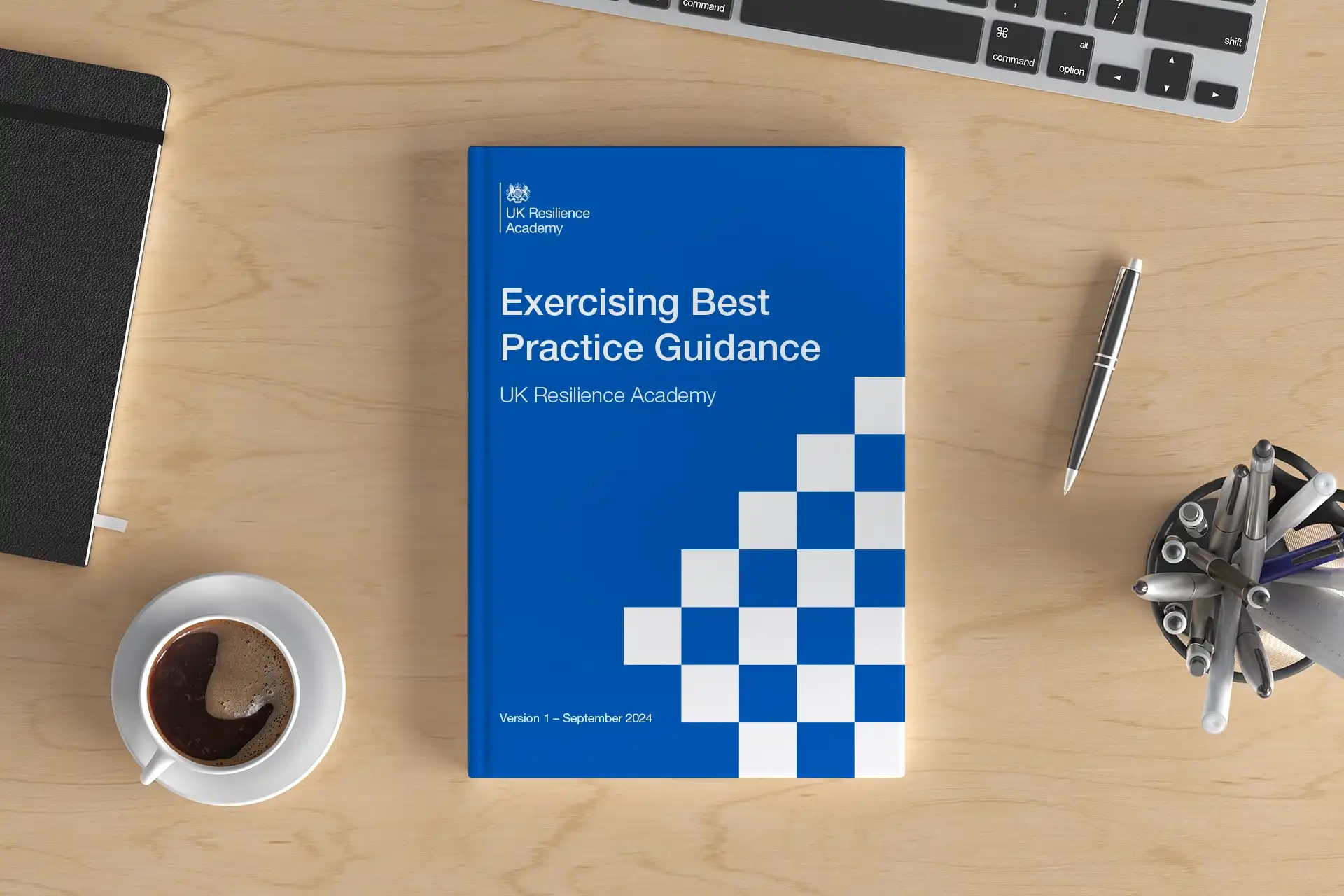
Exercising Best Practice Guidance
Guidance on what local planners need to consider when developing flexible plans for evacuation and shelter.
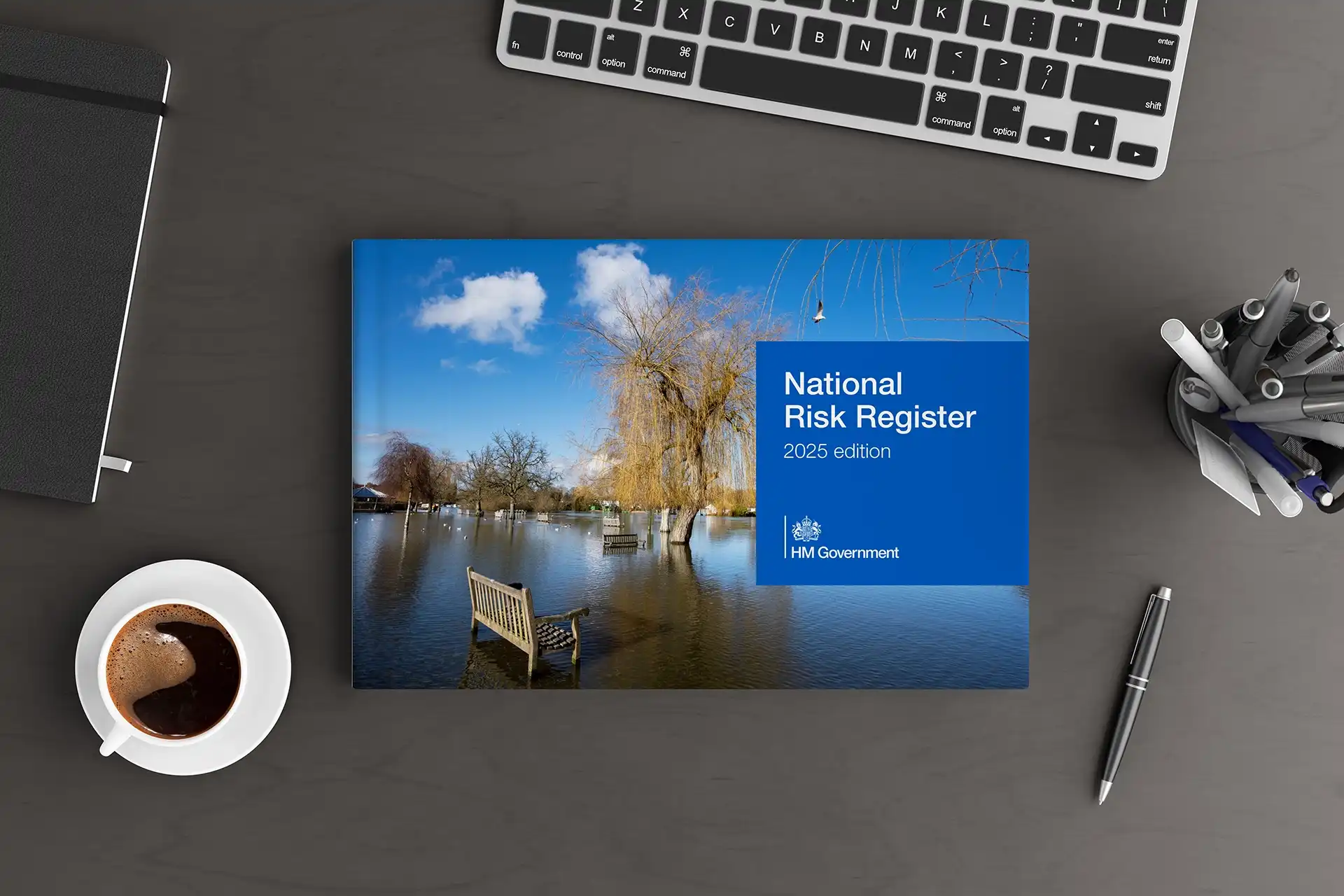
National Risk Register 2025 Edition
The National Risk Register outlines the most serious risks facing the United Kingdom.
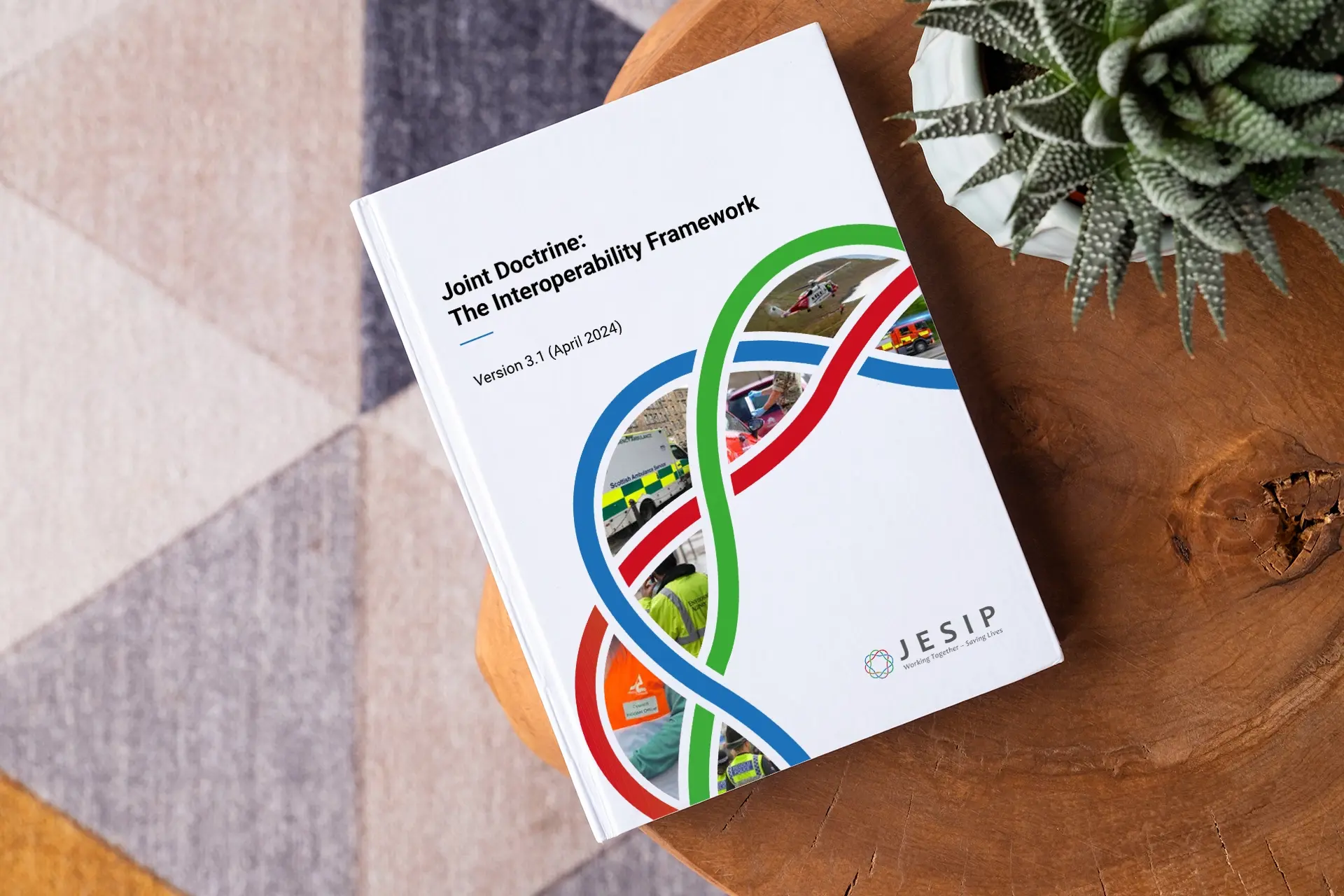
JESIP Joint Doctrine
JESIP Joint Doctrine (Edition Three) continues to provide a common way of working together to save lives and reduce harm in an emergency.

JESIP Testing & Exercising
JESIP’s (the Joint Emergency Service Interoperability Programme) Testing & Exercising page provides a range of resources including an Exercise Assurance Framework, an Umpire Evaluation Sheet and a Multi-Agency Debrief Template.
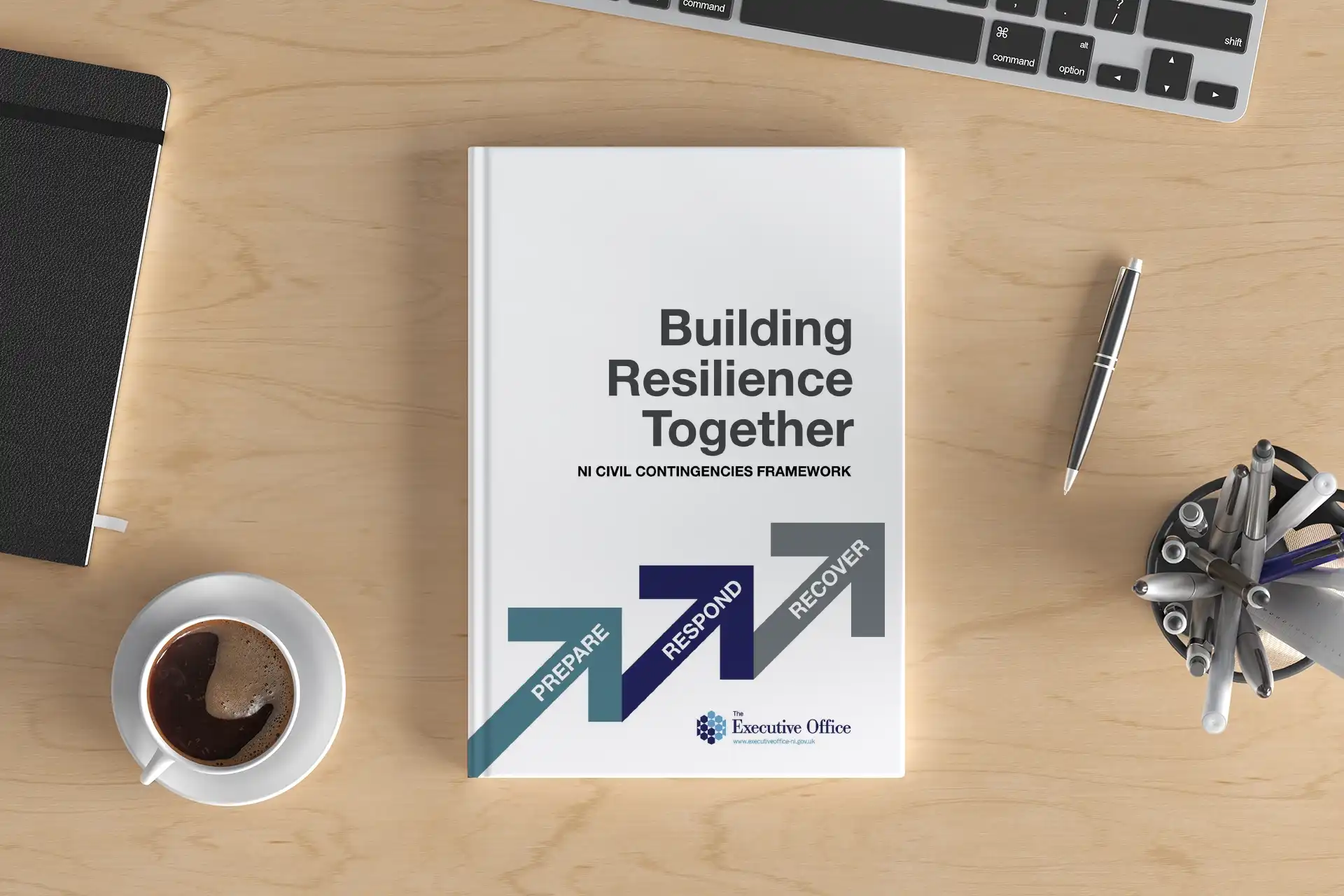
Northern Ireland Civil Contingencies Framework (Revised 2023)
The Northern Ireland (NI) Civil Contingencies Framework sets out NI arrangements for effective Emergency Management.

Data Sharing for National Crisis Response
Guidance on part 1 of the Civil Contingencies Act 2004, its associated regulations and non-statutory arrangements.
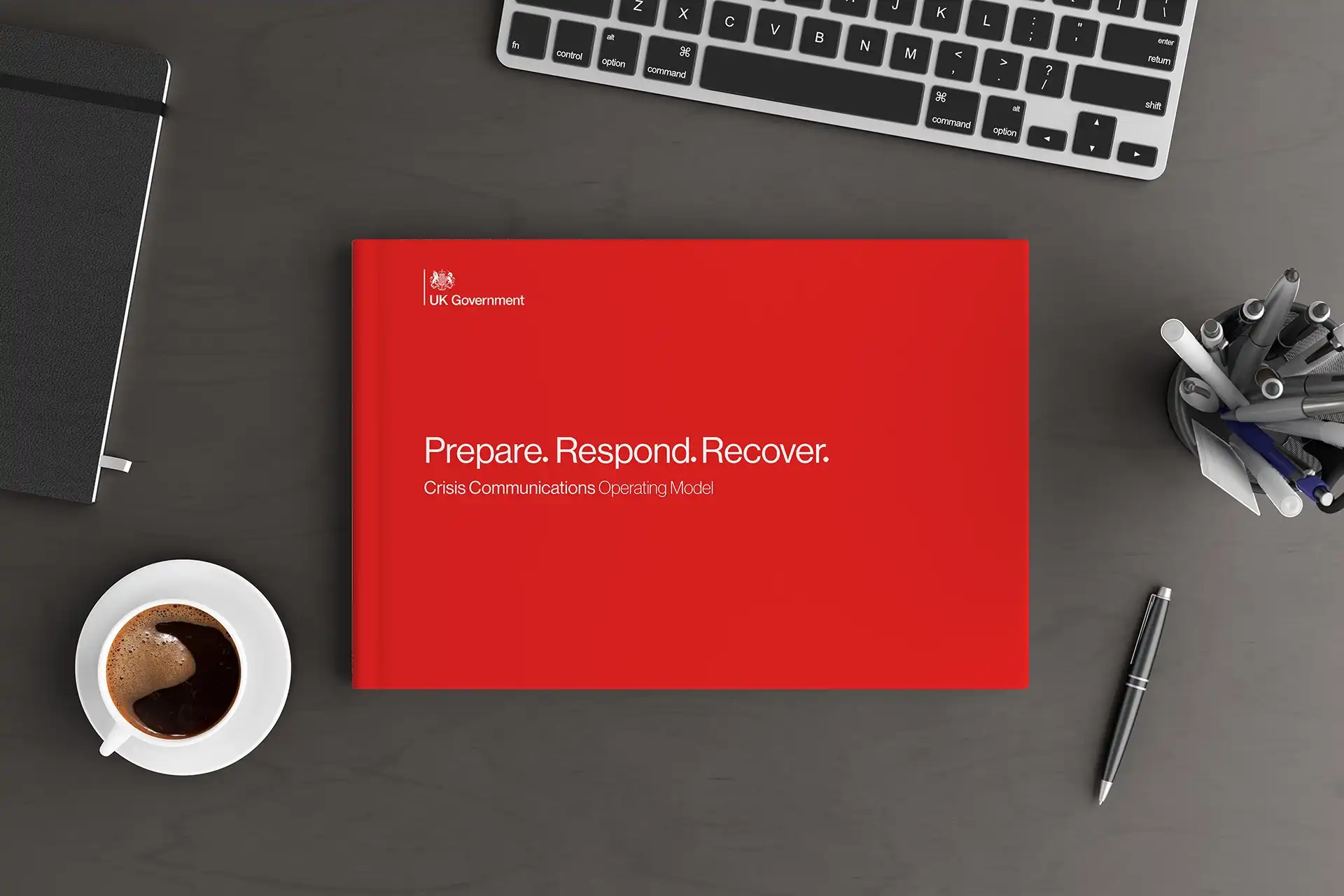
Crisis Communications Operating Model
The Governemnt Communications Service (GCS) Emergency Planning Framework.
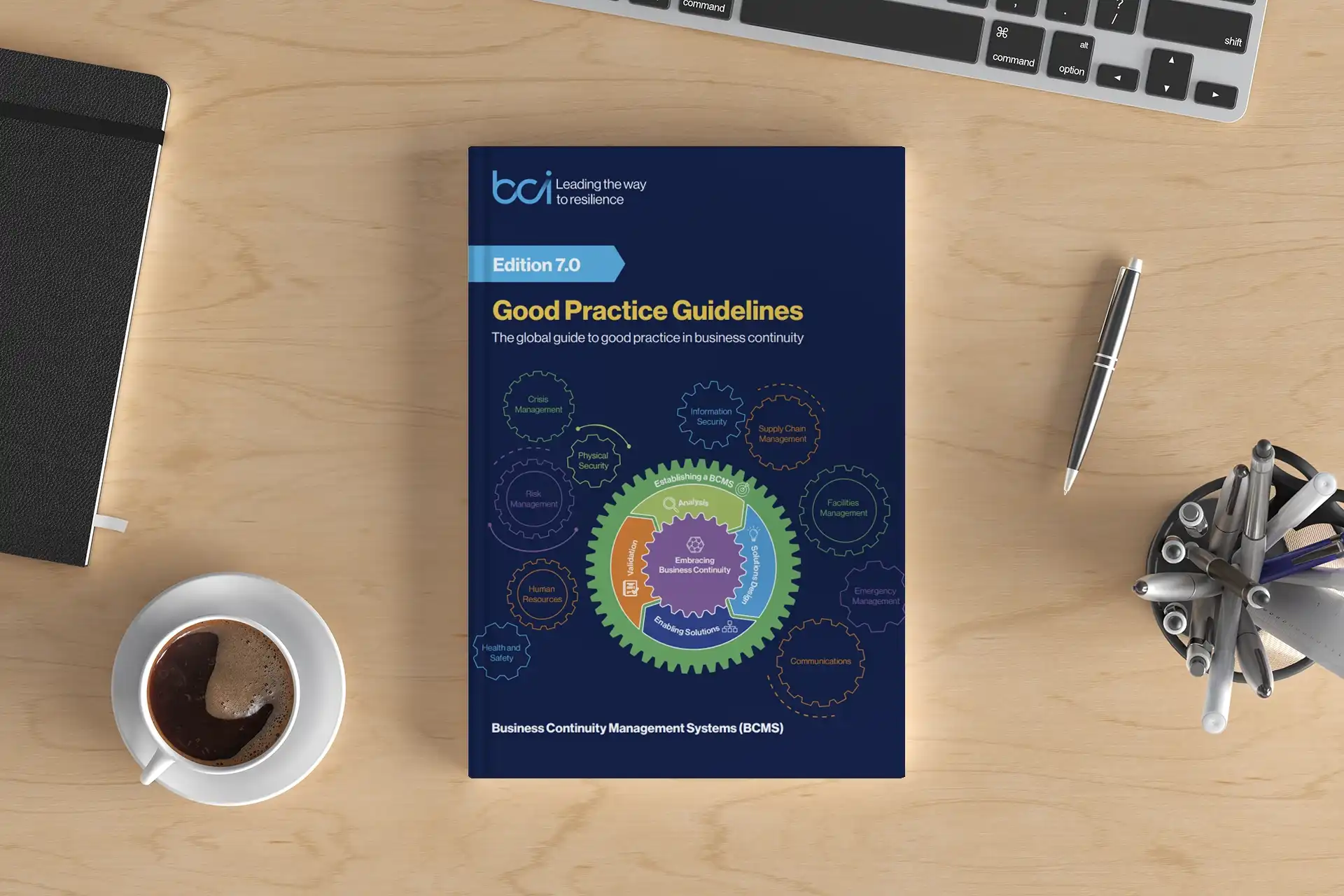
BCI Good Practice Guidelines v7.0
The latest edition of the global guide to good practice in business continuity.

CONTEST: The UK's Strategy for Countering Terrorism
CONTEST is the UK’s counter-terrorism strategy. It’s based on 4 themes: prevent, pursue, protect and prepare.

FEMA Exercise and Preparedness Tools
The Federal Emergency Management Agency is a federal agency which helps the United States respond to and recover from disasters.
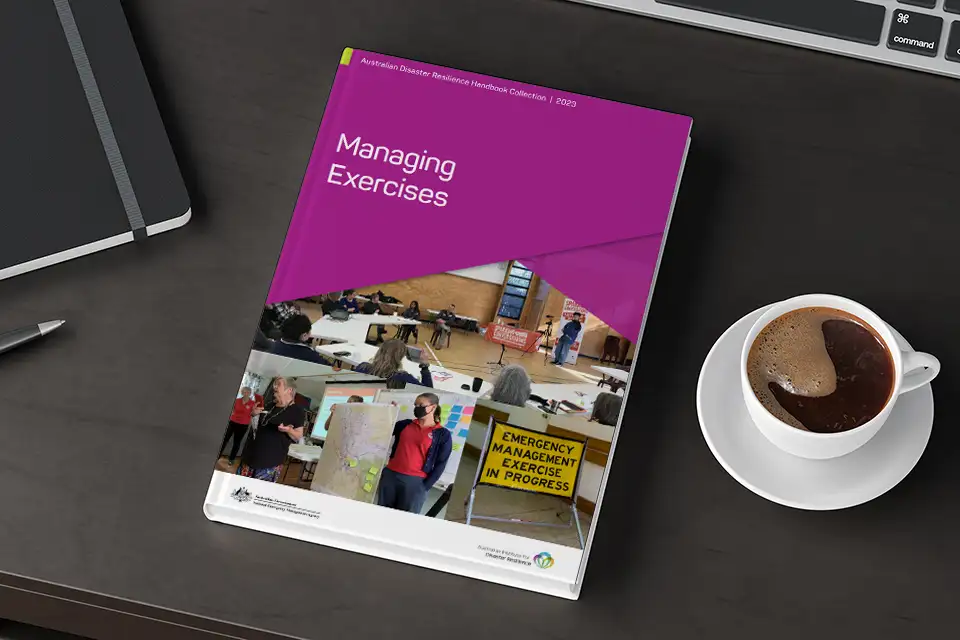
AIDR - Managing Exercises Handbook
The Managing Exercises Handbook is one of a series of handbooks on the Australian Disaster Resilience Knowledge Hub. It provides guidelines for the design, planning, conduct and evaluation of exercises.

Joint Organisational Learning
JOL (Joint Organisational Learning) Online, which is hosted on Resilience Direct, is the national repository for interoperability, national resilience lessons and notable practice across the UK.

AIDR Knowledge Hub
The Australian Disaster Resilience Knowledge Hub is an open-source platform that supports and informs policy, planning, decision making and contemporary good practice in disaster resilience.

Crisis Communication: A Behavioural Approach
This guide explores how to anticipate public behaviour in a crisis.
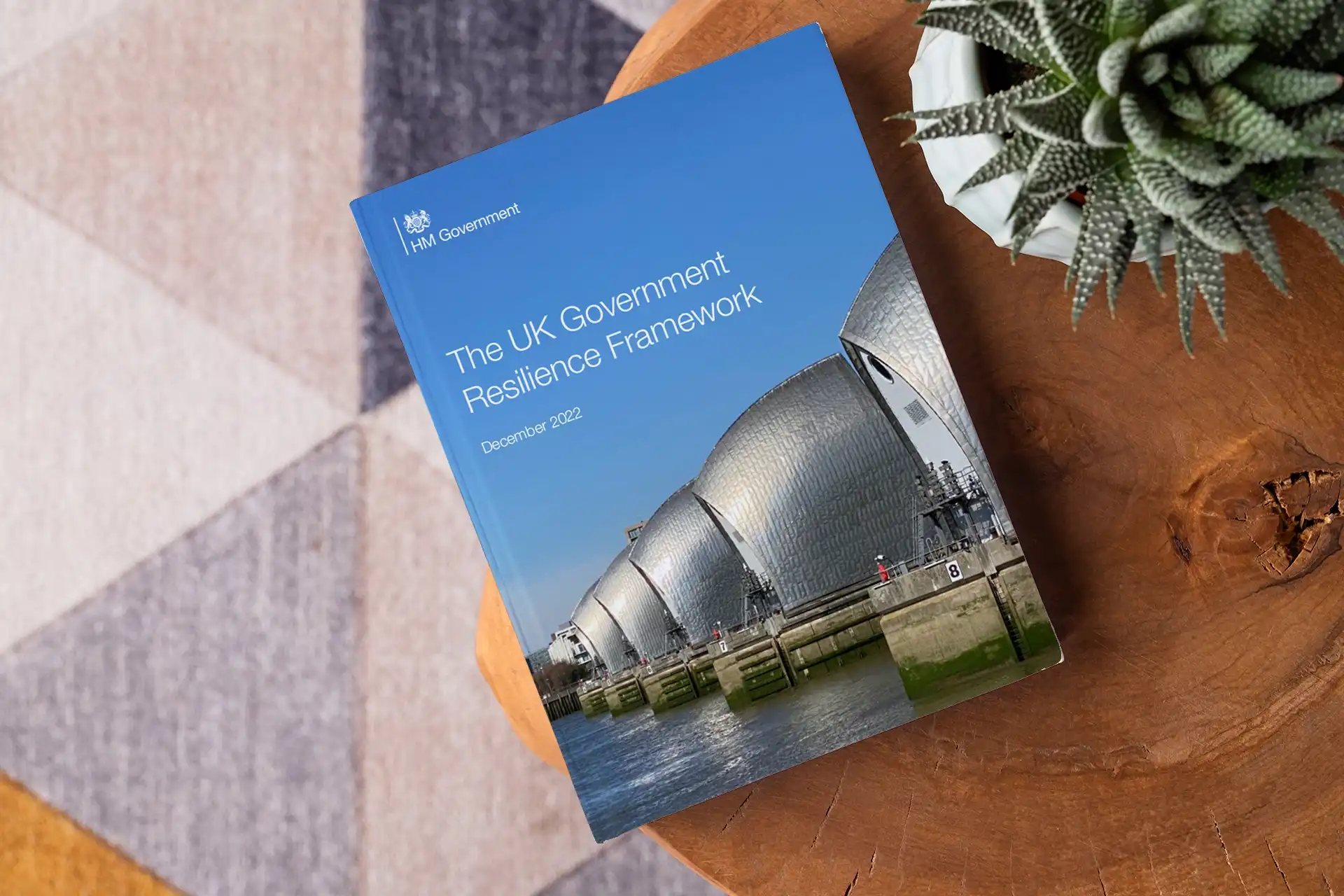
UK Government Resilience Framework
The UK Government Resilience Framework sets out how we will strengthen the systems and capabilities that support our collective resilience.
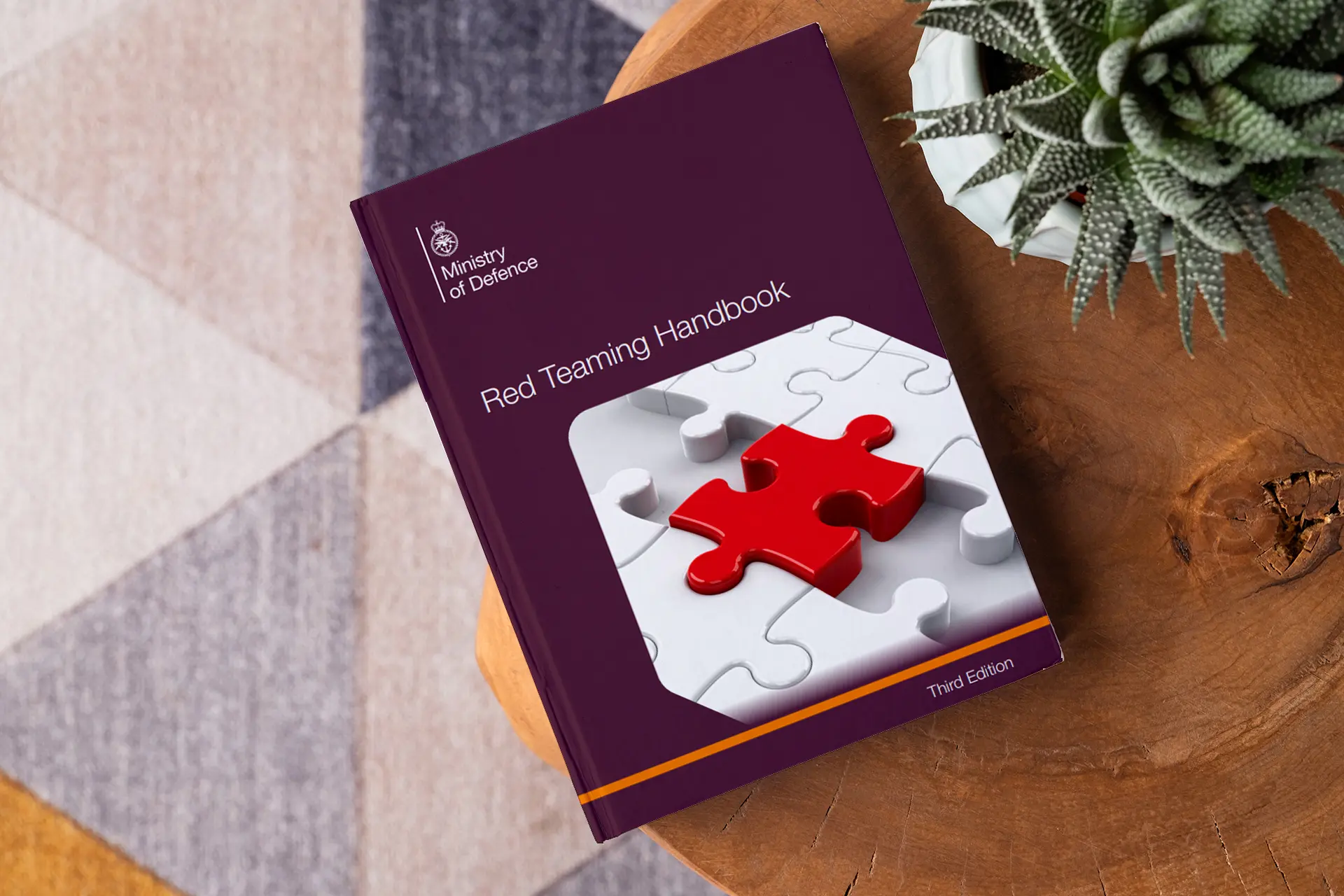
Red Teaming Handbook
A practical ‘hands on’ manual to support civilian and military audiences in the use of Red Teaming techniques
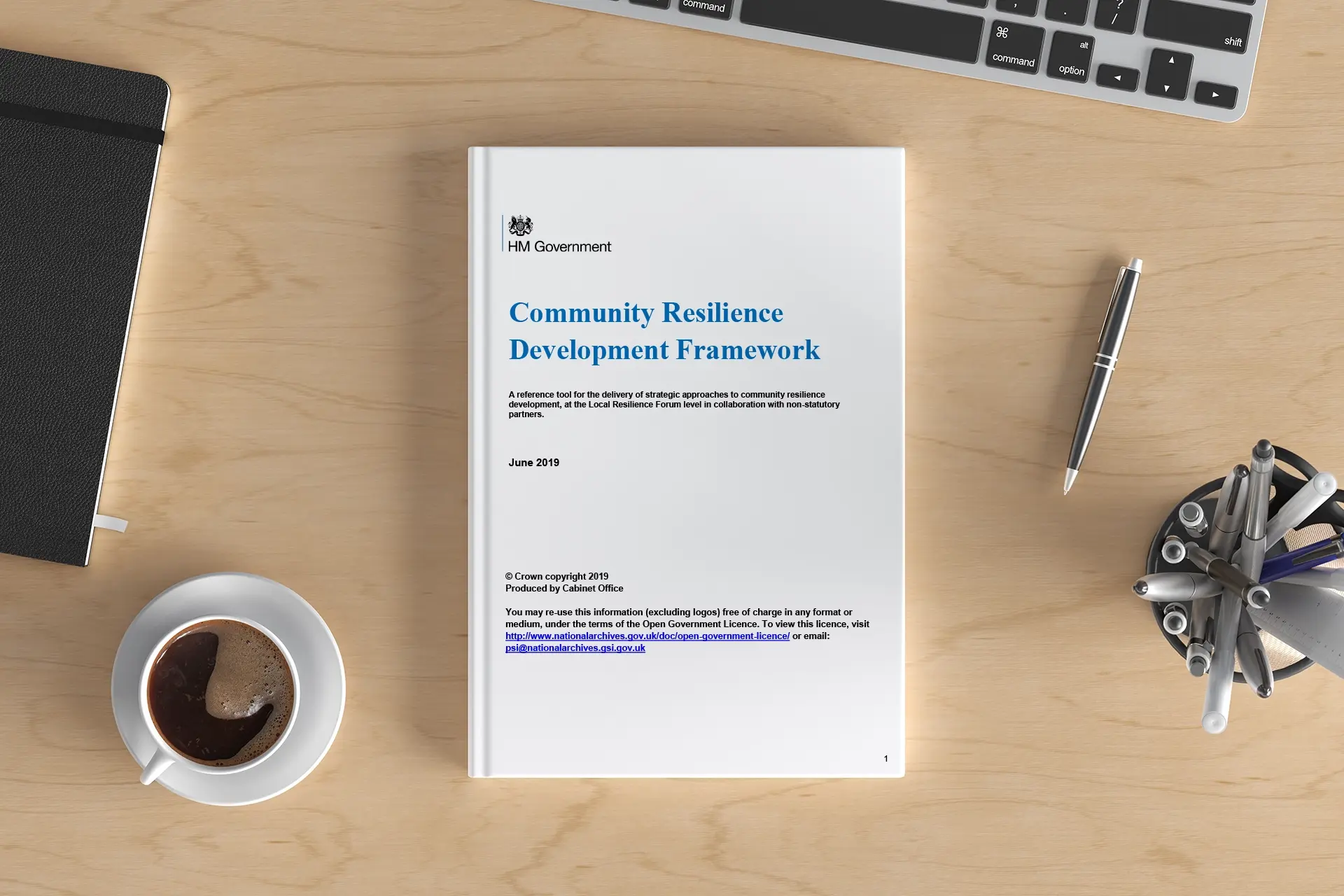
Community Resilience Development Framework
Helping emergency planners ensure communities are central to emergency planning, response and recovery.

Preparing Scotland
Preparing Scotland is a set of national guidance documents to assist Scotland in planning, responding and recovering from emergencies.

Preparing Scotland Exercising Guidance
Preparing Scotland is a set of national guidance documents to assist Scotland in planning, responding and recovering from emergencies. The purpose of this guidance is to provide a practical tool to assist in the planning, delivery and evaluation of exercises.
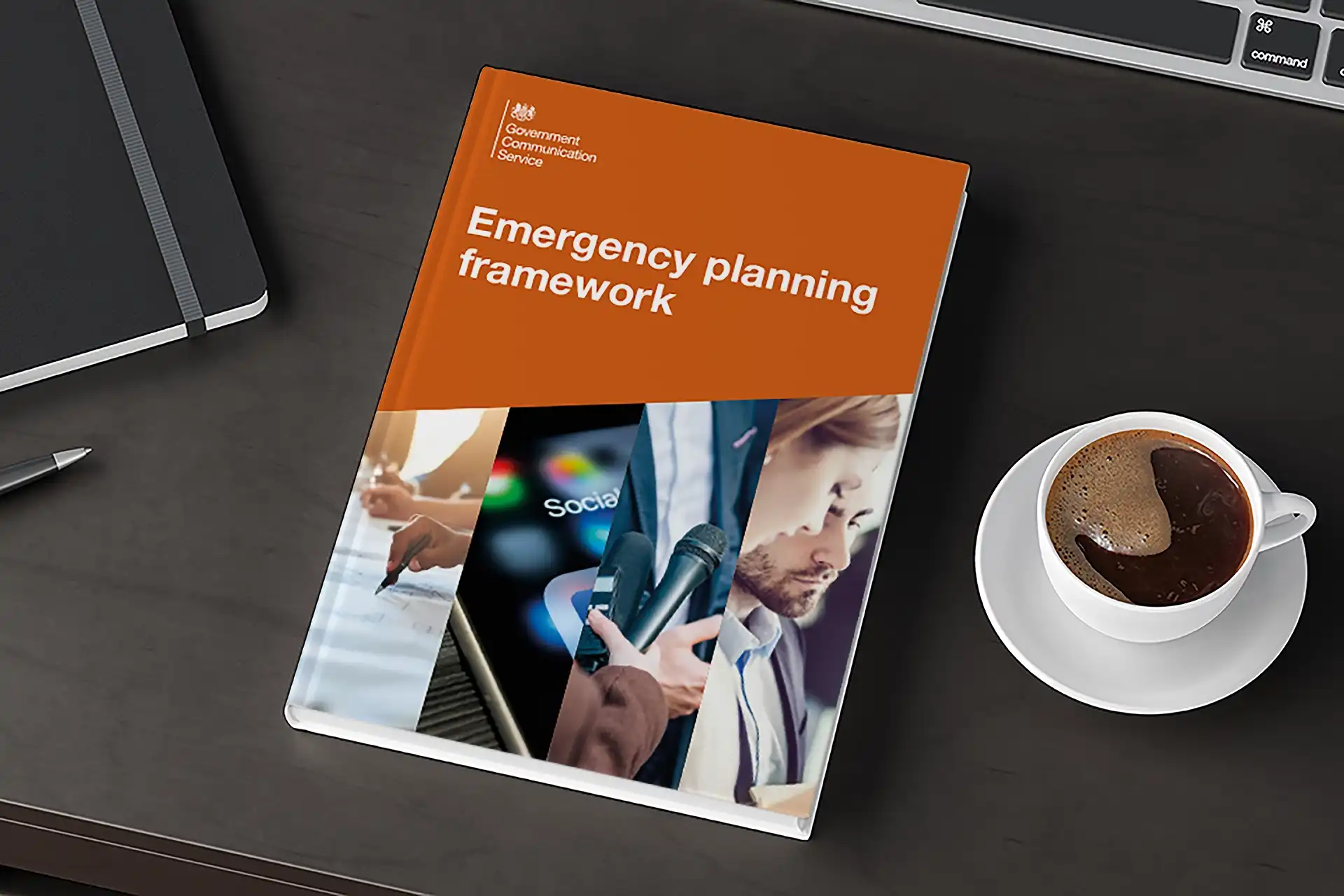
Emergency Planning Framework (PRIMER)
PRIMER provides a framework for crisis communications.

Emergency Response & Recovery
Guidance for staff of responder agencies, particularly senior officers or managers involved in emergency response and recovery preparations.

The Amber Book - Managing Crisis in Central Government
The Central Government’s Concept of Operations sets out the UK arrangements for responding to and recovering from emergencies.

Emergency Preparedness Guidance
Guidance on part 1 of the Civil Contingencies Act 2004, its associated regulations and non-statutory arrangements.
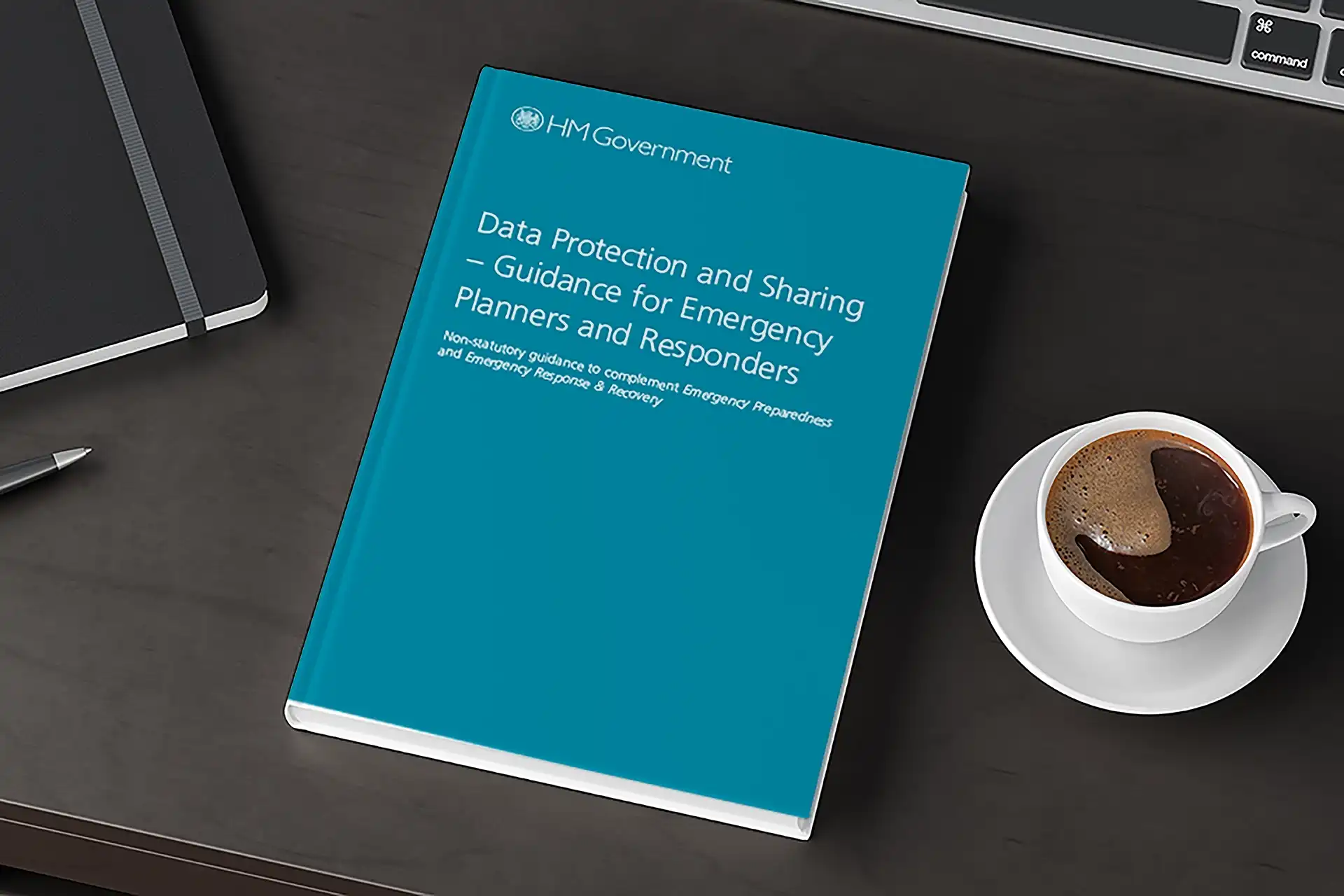
Data Protection and Sharing: Guidance for emergency planners and responders
Guidance covering key issues relating to data protection and sharing in emergency planning, response and recovery.
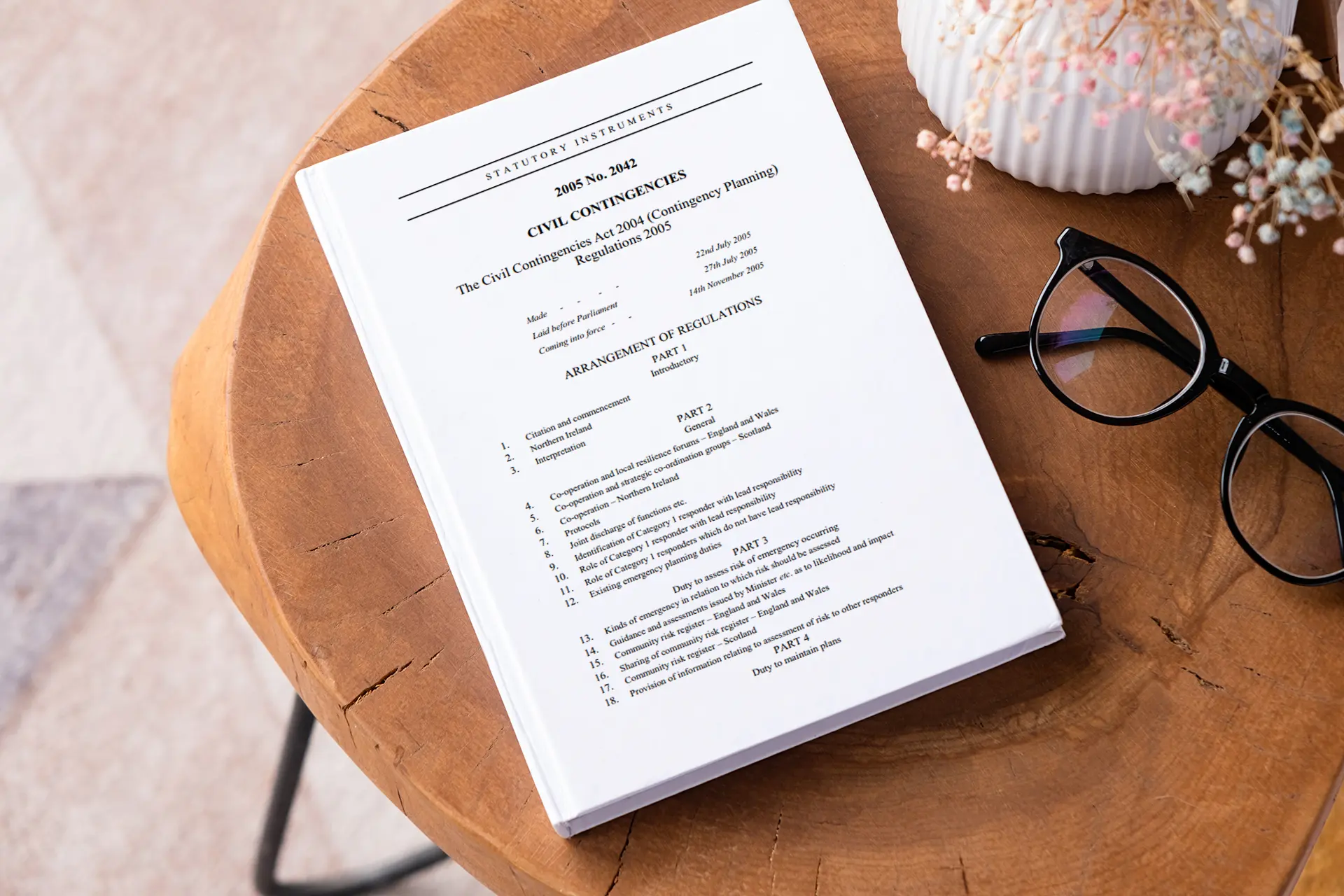
Civil Contingencies Act 2004 (Contingency Planning) Regulations 2005
The Civil Contingencies Act (2004) Regulations (2005) describe the extent of the duties imposed on organisations under the Act, and the manner in which those duties are to be performed.
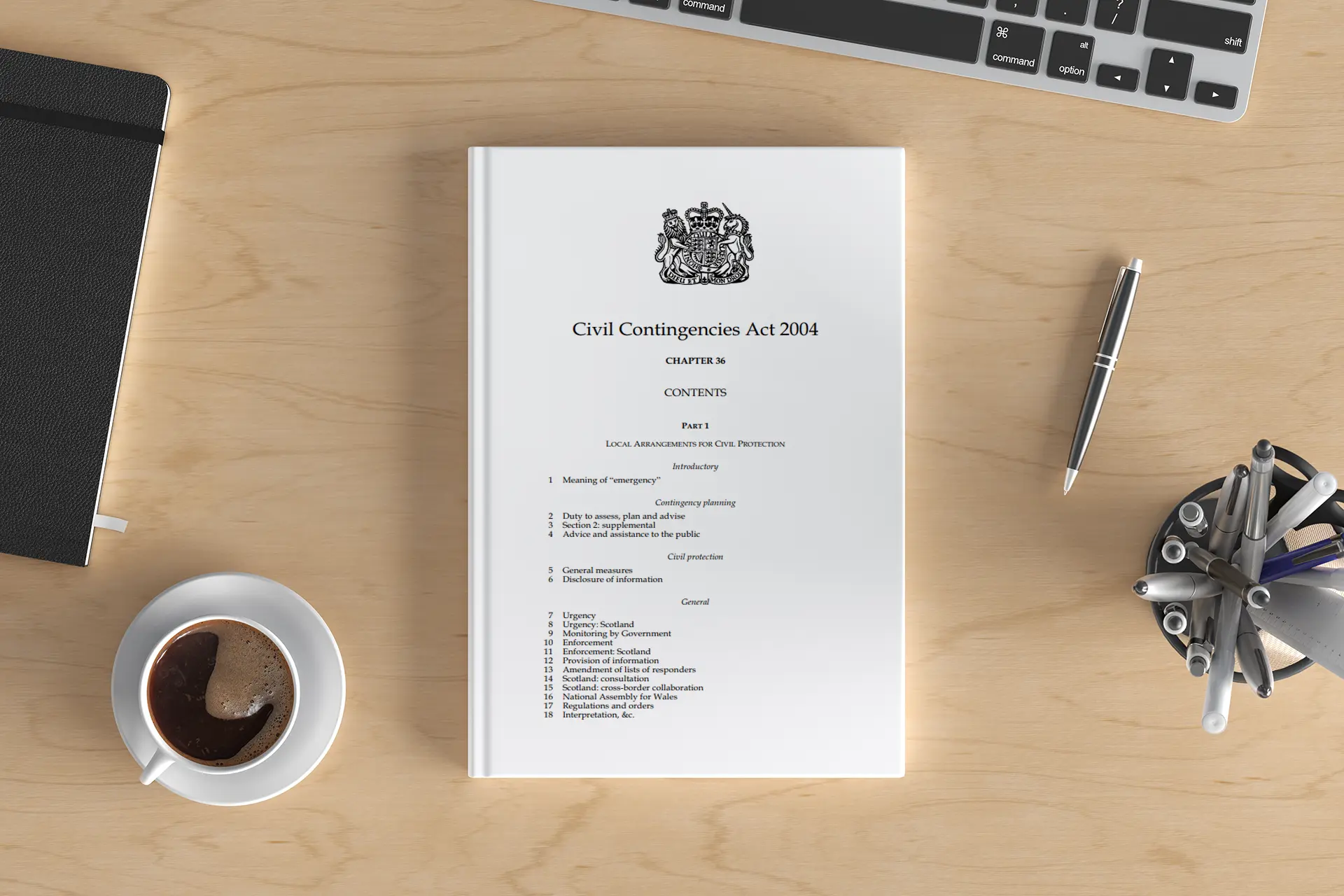
Civil Contingencies Act
The Civil Contingencies Act 2004 (CCA), and accompanying non-legislative measures, delivers a single framework for civil protection in the UK.